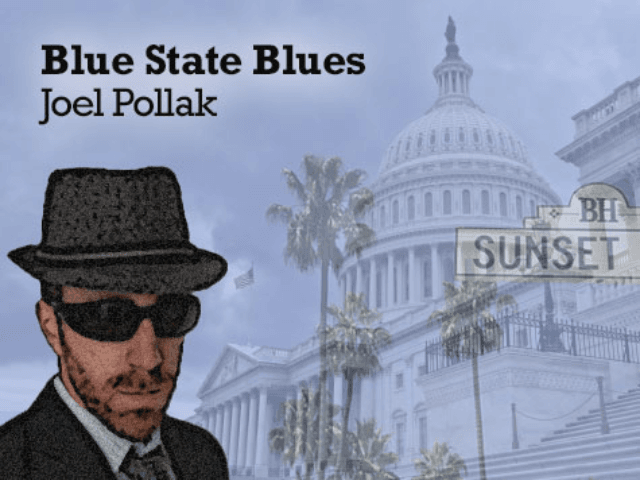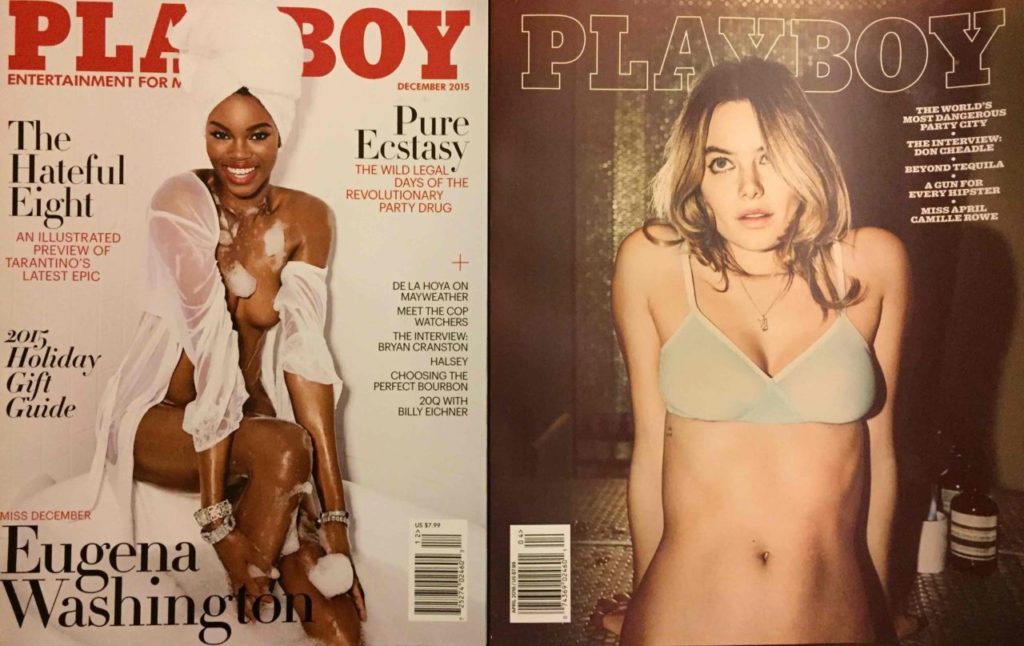As I began writing this column, I checked Playboy.com on my iPhone, in case that iconic pop culture institution — or, if you prefer, that puerile gateway drug to depravity — somehow hadn’t fallen quite as far as I imagined.
I thumbed down, past: a lead story about a rapper, a recipe for liquid nitrogen ice cream, advice for playing Pokémon, a review of the Assassin’s Creed trailer, and a first-person essay praising a new video game.
It took five scrolls on my iPhone before I saw anything resembling a woman. (Clothed, of course.)
This is the new Playboy: Buzzfeed without boobs, pitched at a lost generation of young men who have evidently given up on work and marriage, much less girls, and have little imagination beyond the basement.
The old version of the print magazine — now nude-less for several months, in an apparent attempt to salvage the company’s cash flow by scrounging front-row retail sales — has left no trace. The new print version holds less interest, and shows far fewer curves, than a Pottery Barn catalogue.
What the religious right and the feminist left could not destroy, the Internet has finally defeated — or so the story goes.
CEO Scott Flanders told the New York Times in October: “You’re now one click away from every sex act imaginable for free. And so it’s just passé at this juncture.” In an age of YouPorn and webcams, Playboy could not compete, he suggested. Flanders took consolation in the idea that the sexual revolution Hugh Hefner began had, in fact, won: “We are more free to express ourselves politically, sexually and culturally today, and that’s in large part thanks to Hef’s heroic mission to expand those freedoms,” he declared.
Now Playboy drags along, offering covered-up models in “provocative poses” that evoke what college kids are likely to post on Tinder, rather than the grown-up fantasies the magazine once planted in the male imagination. The company seems, sadly, to be biding its time until an investor bites on its $500 million ask (complete with a life estate for Hef in the Mansion).
But was Playboy really beaten by the competition? Or did it beat itself (no pun intended)?
Playboy had raunchier competitors for decades, which existed precisely because the magazine did not offer sex, except for the grown-up advice columns and the annual “Sex in Cinema” review. The fantasy Playboy provided was not about sex but about women — beautiful women who were, or were becoming, adults, and who wanted to share something of that adulthood with the men (and the boys) who admired them.
The new incarnation of Playboy, which you no longer need to be 18 to buy, tells its readers that being a man is not much different than being a child. You still play the same video games, watch the same cartoons — and, thanks to Obamacare, have the same health insurance (i.e. your parents’). The women are an afterthought, like the boys themselves: listless, unrefined, too comfortable in socks.
The old joke about Playboy was that no one read it for the articles. What is amazing about the new Playboy is just how uninteresting the articles have become.
In fact, the decline of the articles began long before the end of the centerfold.
Editorially, Playboy had been trending left for years — a movement that began in the civil liberties clashes of the 1980s, but picked up steam recently, in tandem with The Daily Show and other cultural artifacts of anti-Bush hysteria.
There were a few exceptions, such as Playboy‘s 2013 interview with Sean Hannity (and, of course, its 2011 conversation with Andrew Breitbart). Politically, though, it had more in common with Bernie Sanders. The editors seemed oblivious to their own knee-jerk anti-conservative biases — and how boring they were.
Perhaps at some point Playboy decided that conservatives wouldn’t read or buy the magazine anyway, so why bother. But at that point, they lost touch with the conservative restraint that gave Playboy its unique edge. Even in the magazine’s roaring prime, the Playboy Advisor counseled monogamy, just as the pictorials kept the poses modest.
Something about love was on offer. Now that is lost, neither replaced nor replaceable.


COMMENTS
Please let us know if you're having issues with commenting.